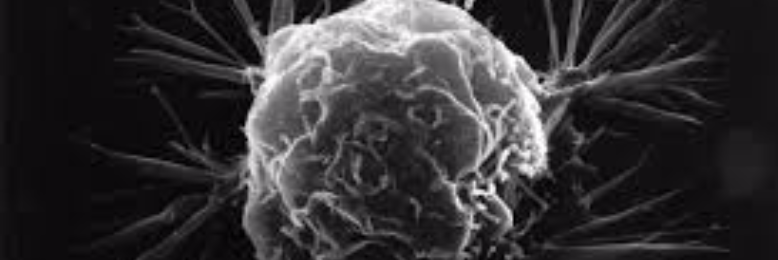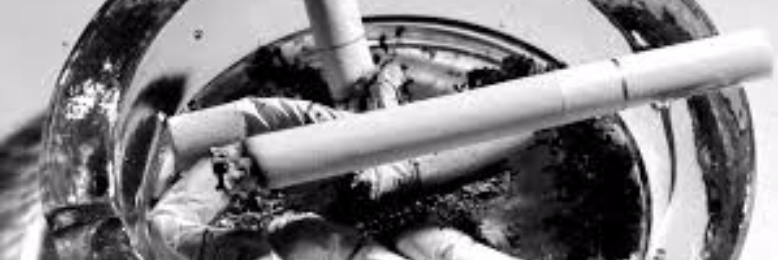
Me Two
“Kyle! Wake up. Are you okay?” She brushes his long hair away from his face. His brow is awashed in a hot sweat.
Sitting up he looks at her. Confusion awakens upon his face.
Kissing him lightly on the lips, her hand resting on his chest, she can feel his heartbeat. “Did you have a bad dream.”
He smiles at her touch, “Yeah. I dreamed I was running for president.”
“A nightmare.” She pulls her hand away.
Reaching back, he straightens the twisted pillow, “It was one of those dreams you have where you know you are dreaming but can’t wake up.”
The alarm clock sings, Kyle slaps the oversize button shutting off the sound.
"I was on stage at a debate. I was standing in the middle with the other candidates on my left and right. I recognized their faces but couldn’t remember their names. I was the one speaking. Thousand of people were in the audience and there were television cameras everywhere. I was talking about the tragedies of big government. The moderator, that guy from CBS, you know, the one with salt and pepper hair, the one you think is so good-looking, he keeps telling me my time is up. And then I was standing in the audience, but still on the stage. There were two of me. The one on stage and the one in the audience. I was looking up at the candidate-me trying to hear what I was saying, but there was a rather robust woman standing next to me, the me-two, breathing garishly. She sounded like your Dad's bulldog. He always sounds like he is snoring, even when he’s awake. That’s how she sounded. She had orange hair and was wearing a bright green t-shirt, to small for her. Written across the front of the shirt, right on top of her enormous boobs, BBW Feed America!”
“You dream about boobs?”
“No. She was just really a large woman who sounded like a bulldog. Number two me looks up at the stage, I can see candidate-me’s nose running. Thick yellow and green snot is running out of my nose. He...I, just keep talking like I don’t know it’s there. The other candidates are looking away, trying not to see the snot. Nobody says anything. I think, where the hell is the make-up girl? The snot just rolls amd rolls.”
“That’s gross.”
Ignoring her assessment, he continues, “Two large screens, one on each side of the stage, blare to life filled with a close up of candidate-me. The snot is glistening under the bright stage lights. The camera zooms in on my running nose as the snot reaches my upper lip. I keep talking about big government. The snot hangs on the edge of my lip before rolling into my mouth. People are laughing and laughing, and I keep talking and dripping, oblivious to the laughter and the neon nasal discharge. The fat lady starts singing a Bob Marley song, 'Don’t worry about a thing, cause every little thing gonna be all right.' I look at her bouncing up and down, singing Marley out of tune. She gets louder and louder. I can’t hear what candidate-me is saying. She’s almost screaming now, but she’s changes the words, ‘Don’t worry about a thing, cause every little thing gonna be ALL WHITE!’. I yell at her to shut up. I can’t hear what I, the other I, am saying. I look up at the stage and snot is now running down my face, my chin. My red tie is covered in yellow snot and I just keep talking about big government. The fat lady keeps singing. I turn to her to tell her to shut her fat trap when she reaches down the front of the green t-shirt and pulls out a pistol. Somebody yells gun and then everyone is running. She’s pulling the trigger over and over. Bang, bang, bang."
"Oh my God!"
"On the stage, all the other candidates are running, but not candidate-me. He has discovered his running nose and is wiping it on his sleeve. I turn back to the shooter. It’s a toy gun. A cap gun like I had when I was a kid. A long string of red cap-paper hangs out the side of the silver toy gun like a giant’s tongue. The air is filled with the odor of popped caps."
"I didn't know you could smell things in a dream." The girl offers.
Kyle ignores her, "White smoke floats around the fat lady's head. She is still butchering Marley’s song. The people don’t know it’s a toy gun, they are running everywhere trying to get away.”
“Kyle, you never remember your dreams.”
He continues, “Back on the stage, the other me looks out the crowd. He sees me looking at him. Our eyes meet. It's weird. 'Run!' I scream at him. He starts to run but slips on the snot-covered floor. Someone is laughing. I think it was me. The other me." He looks across the room at her vanity mirror. His tired face stares back at him.
"Then I heard you screaming. I push the fat lady out of the way and run towards your voice. So many people. All of them running.” He pauses, closing his eyes.
When he begins to speak, his voice cracks, “Then I saw you. You were lying on the floor. The people were running past you. Over you. No one tried to help. I tried to run but I couldn’t. My legs were so heavy. Then I was kneeling beside you. Blood was running out from beneath you. The floor was covered in red blood. Your blood.”
She puts her around him. Comforting him. He trembles in her arms. He looks up, she sees tears running down his cheeks and a stream of glistening snot running from his nose. She pulls away. “I was dead?”
“I think so. I can’t remember. The fat lady runs by me laughing and singing. I look up at the stage. The giant screens are showing a Nike commercial. The candidate-me is nowhere to be found. And then I woke up.”
He wipes his pajama sleeve across his face. A string of snot hangs like a tightrope from nose to arm swinging back and forth before breaking away and falling to the sheets.
She swings her legs over the side of the bed her bare feet slap against the floor.
Walking away she asks, “What the hell did you eat last night, Kyle?”
Thank you!
Thanks to all the Proser-s who have liked, commented, shared and critiqued my stories and poetry over the last year. 'The Prose' was my test lab to see what would work in my newest book, "The Last Storyteller-A Collection of Back Porch Ramblings & Surges of Sensibility". Truthful feedback and your words of encouragement kept me going when I was ready to give up. You tolerated my ramblings that were less than me as I went through a chemotherapy induced writer's block. (Thank God I didn't publish during those awful days) I looked at the list of "Followers" and realize I don't know any of you away from this small computer screen. This is astonishing when I consider the support you have shown me. You are what distinguishes writers from storytellers. Thank you for taking in my stories.
Jim
The Fisherman
The glacier-fed waters of the Russian River run crystal clear; I see the elk hair caddis fly, with its chartreuse fibers, jutting from the fish’s mouth. Experience tells me the fly’s razor-sharp hook is not sunk deeply into the flesh of the rainbow trout, indeed, it is barely hanging on. Finesse will be required. The black speckling and the dusky pink center stripe running the length of her glorious body reminds me of why I am here. She’s over thirty inches long, not a record but a lifetime story. God made days like today to be remembered forever.
It was awe inspiring—a perfect roll cast, the luminous green braided line matures into a glorious loop shedding sprinkles of water from its back. The fly floats downward softly landing on the ice-blue waters, the fish turns her sleek form, inhales the caddis fly, I test the hook, the river splashes against her struggles, and then…
Heavy footfalls of a brown bear crashing through the underbrush punctuate the landscape. Rocks tumbling down the steep bank into the confines of the frigid river disturbs her serenity. The she-bear comes to an abrupt halt, her breath heavy and rapid. I turn my eyes away from the prize rainbow and the flowing river to see the red-brown of her spring coat, her white teeth, the searching eyes. She doesn’t see me.
Slowly, I move to my left and back a solitary step. I now stand between two massive pine trees. The tree on my right conceals me from the bear. The tip of my fly rod is pointing at the morning sky, the braided line stretches out past the river’s bank, over the pristine waters, held taut by the rainbow trout. Small beads of river water continue to fall from the line. The fish dives to the bottom of the shallow river, wiggling her silky body against the sandy bottom causing a seal, a suction against the pull of my fly rod. She is safe for the moment.
I am not.
Keeping the line taut, I peek around the tree. The bear Is sniffing the air, her jet-black nose quivering rapidly. A bear’s sense of smell is very keen. I can’t remember if they have good or poor eyesight. I pray it’s the latter. She has found my red lunch bag, the kind with a zipper around three sides and thermal lining on the interior. She smells the dried salmon jerky. I curse my wife under my breath. Who puts fish in a lunch bag? We live in Alaska. There are bears in Alaska. Bears eat fish. Stupid!
I forgot to close the zipper. Who’s the stupid one?
One swipe of her massive paw and the bag rips apart. A earsplitting snap of her powerful jaws and the salmon is consumed. Nothing more to eat here. She sniffs at the remnants of the red bag. A second swipe and the injured bag soars into the river, carried away by the current never to be seen again.
I check my line. Still tight, tip pointing at eleven o’clock. The rainbow is still there. My arms are bent, holding the pole against my chest. They are beginning to ache. Beads of sweat drop from brow to pine needle blanket below my feet.
The brown bear strolls to the water’s edge. If I tug on the line the fish might break water. The bear see’s the fish. The bear runs to the fish. The bear eats the fish. My fish. It could give me a chance to reach down and remove my pistol from the holster. I could shoot off a couple of rounds. Not at the bear; that would be deadly stupid. But the report may frighten her away...with the remains of my fish hanging from her jaws.
I hold the line steady.
Maybe someone will come. Probably not. The tourist, (I call them pukers) don’t venture this far up river. Because of the bears. They stop downstream, before the confluence of the Russian and Kenai River. That’s where the salmon are. Easy pickings. The pukers will sing “Fish On, Fish On!”, not knowing what they are doing or what a real fish is. Rainbow trout. Now that’s a fish. Besides, it’s still too early for them, and too cold. Nobody’s coming.
The bear is looking towards me. Good eyesight? I can’t remember. She turns her massive head back to the river. I wonder if she can see my fish hiding in the rocks.
Buzzing. Suddenly a buzzing fills my right ear. Mosquito! I close my eyes and hold my breath. They’re attracted to our breath, you know. Maybe not. That might be some Alaska bullshit. Moose shit? The buzzing gets louder. An almost uncontrollable urge to slap at the incessant buzzing insect consumes me. (Better than the bear consuming you, I almost smile.) Just land you little piece of dung. Stick your proboscis where ever the hell you want, suck some blood and fly away!
More buzzing. She has friends. I could slap at them. That’s a problem. I think I could do it without the she-bear hearing, she seems preoccupied now. But to slap at the buzzing bugs means taking one hand off my fly rod. The line will go slack. The fish, my fish, will spit out the hook. She escapes. She swims the way of the red lunch bag, never to be seen again.
The buzzing is not that bad.
I was wrong. The bear is not preoccupied. She’s hunting. She senses me.
Her eyes follow the line. Up from the river, into the sky. She stares up into the early morning sky, squinting against the sun. Land of the midnight sun. I should be sleeping. So too the bear. Her neck stretches back, following the line’s descent. She’s a smart one. She spies the tip of the spey rod quivering innocently. She watches it as if entertained by this micro-dance.
She has seen me! Shaking her head, she roars. Turning her eyes back to the Russian river she knows my fish is there. Back to me. To the fish. A choice to be made.
“Stephen!” Someone calls.
It’s Ivan. I recognize his brusque Russian accent stretching the “S” before delivering the “tephen”. The tree on my right blocks my view but I hear the ground below his boots crumble away as he descends the steep bank. He must have seen me.
He must not have seen the bear.
Ivan Vasiliev has been my neighbor and friend since I arrived in Alaska eight years ago. He taught me to fly fish, how to kayak the Kenai, how to smoke salmon and thirty-two other ways to prepare the popular fish. He introduced me to the Russian River and her populace of rainbow trout. When my wife went into early labor with our second child I was working a three-week shift in Prudhoe Bay; Ivan took her to the hospital, got a sitter for child number one and even helped with the breathing techniques until she relented and screamed for the drugs. Ivan is my best friend.
The bear saw him.
Forgetting me. Forgetting the Russian River and the snagged treasure that awaits at the end of my line, she turns. The muscles in her shoulders and hindquarters billow exposing her great strength and speed. Ivan is half way down the bank before he spots the she-bear. Digging his heels into the rocky ground his descent stops abruptly, pitching him forward. Ivan’s knees slam into the earth, he skids a few feet closer to the bear. With every muscle rippling the bear stands stretching her quivering snout to the heavens and roars.
Leaning slightly, I can now see Ivan’s face, our eyes meet for a moment. He refocuses, his eyes finding the pistol hanging on my side. He nods his head oh-so slightly. My hands are frozen to the fly rod, the cork spongy beneath my grip. A vibration is felt signaling the impatient trout’s desire to be caught or move on. The weight of the pistol magnifies with each passing second. More sweat pours to the ground. Ivan nods again, his eyes wide, “What are you waiting for?” they scream. The bear roars. She turns her head to me, sniffs the air. Ivan screams, “Stephan! The gun! The gun!” The bear’s massive head turns towards his cries. Another decision to be made. The rainbow trout sensing something amiss breaks away from the river’s bottom; the reel spins rapidly as the line is claimed by the running rainbow. The bears roars again dropping to all fours, her glaring black eyes watching Ivan, my friend.
She runs. I close my eyes. Set the hook…
Beautiful Dying
"It was never about getting high, if that’s what you are thinking. Better ways to get high are around every street corner in the good old U.S. of A. It was about getting lost. About forgetting. It was about going numb. Going numb to the whole fucking world. Opiates will do that...make you numb. They take you away and you don’t even know your gone. It’s not about getting high. It’s about dying. Beautiful dying." Jacko
From "Beautiful Dying"
Hug your addict...later
Today, Dayton’s mayor opined that opiates are a “natural disaster.” Two days ago, a “Commission” asked the President to declare opioid addiction a “national emergency”. The American Society of Addiction Medicine reported more than 20 million people suffer from addiction to opiates. They conveniently omit that the suffering is self-imposed. By my unscientific reckoning, I calculate this would result in more than 60 million people being effected by the sycophantic muck every addict leaves in their wake. Husbands, wives, children. Mothers of the addict. Fathers of the addict. Every day they dodge the slime carelessly flung by the addict's every move.
Because the addict is family.
Millions of family members must deal with the addicted because it is the right thing to do. But so many are doing it the wrong way. Just as the media overflows with stories focusing on the woeful addict and how sad their condition is, placing blame on anybody except the addict, family members are secondary in the struggles of the addicted. And that is wrong.
These family members, I pause here remembering also the stout heart friends of the addict, alter their own lives in hopes of changing the life of the drug abuser. To carry-on, these saints must come to realize putting themselves first is not a sin nor an act of selfishness—it is a necessity! Their love for the addict will become obligation by taking a secondary role. Their servant’s heart will instead bleed the pain of a slave. A slave to the obligation. A slave to the addict. The sacrifices made will become forfeitures forgotten.
Hug your addict but not until you have put yourself first.
I learned this lesson the hard way. For years I chased the hopeless dream of one day hugging a drug-free wife. I consistently made too many addict-first decisions. My day of realization came when I recognized I was losing everything...because of something I had already lost—myself.
My transformation came through God. My conversations with Him didn’t require choosing words carefully so as not to offend or provide an ill-perceived reason for her to go numb. If you are living with an addict and have come to a crossroad where one sign reads “Them” and the other reads “You” know it is time to take the high road. Yours.
Some who read this may not choose the same path I did, a path forged by God. I pray that you would, but if there is another path you prefer which leads to recognizing the foremost importance of being true to yourself before the addict, then take it. Take it with no hesitation, with no regret with no looking back. You will be stronger. You will survive.
Then, hug your addict.
You can read my story at
http://www.amazon.com/Going-Numb-Jim-Hirtle-ebook/dp/B00U49091M/ref=sr_1_1?s=books&ie=UTF8&qid=1448837662&sr=1-1&keywords=going+numb+j+hirtle
The Book
This pain. I fear should I touch it; the fierceness would burn away the flesh of my fingertips. The supreme brilliance would be blinding, should my eyes fall upon its face. All sounds would forever cease if I came too nigh to Pain’s rhythmic cadence.
This pain.
Six decades have passed since I spilled from the womb; gasping for my first breath as the woman who would be my mother inhaled her last. I have diligently traveled the roads life delivered; dealt to me by whatever powers dictate our fate. Not unlike an obedient servant, I climbed hundreds, nay… thousands of mountains; I entered, without pause, into the darkest bends; I descended naively into valleys that were laden with sharp edges. Yet my obedience is honored only with—pain.
Pain is not a stranger to me. I have felt the pain that comes with a flowering youth, devoid of a mother. I survived the pain of embarrassment that poverty delivers to her captured denizens. I recall the dark pain that accompanies harsh illness. I have shared the pain that belongs to others, the ones that I have loved. And I have cried at the pain of loss. None of these alone, nor if you were to bind them together as one, hurl them at me with the strength of Kratos, would compare to the pain that grips my soul this night.
The room is almost dark, a small shaded lantern providing the only light. I sit in my old chair, alone in my old house. I look down at my old body; searching for the nucleus of the pain. I cannot find it for it is not there. It is everywhere. I cannot isolate it, for Pain’s cascade is to great. For a moment, I think it must radiate from my gut, but then it moves—creeping to my heart, and then to my head. It is everywhere. I reach up, trying to stop Pain, my hand touches my cheek; it is wet. Pain laughs.
“It is only a book.” She told me. “Look around, you have hundreds of them.”
She’s incorrect. I passed “hundreds” years ago. The walls of my home are covered with shelves. The shelves are filled with books. The books are…
It is never only a book! Most assuredly true of this one. The one that is now gone.
“Maybe you lost it.” She said.
She doesn’t know anything about me; after all these years, her ignorance bewilders me. I am quite certain she has forgotten that she was the one that gave me the book. Two years ago, it was gift, for Christmas…I think. Now I am the one forgetting. That happens frequently as of late. Pain confuses without affinity. Yet, as certain as I am of her forgetfulness, and my own, I can assure you, I did not lose my book!
It was Christmas; I remember now. Nothing more than a small stocking stuffer; maybe that’s why she doesn’t remember giving the book to me.
“I think you are getting too upset about a book.” She scolded.
It was more than a book. If I close my eyes I can see the soft cover hiding the cream-colored pages. A moment passes, eyes still shut; it is as if the small book were now resting upon my palms, I can feel it. The cover has the sensation of fine leather, but it isn’t. I know it came from culled stock; she had no money then; to be so extravagant would not have been possible. But that does not matter to me.
Behind my closed eyes I stare at the gift. The color was a gentle flaxen, just like her hair, when she had been small enough to bounce on my lap. I turn the book in my hands, remembering. There are no words written on the cover, nor on the spine. The book’s backside is also absent of expression. Fearing I would lose this image, I turn the small knob on the lamp, extinguishing its light, without opening my eyes. I pray the dark will bring sleep. Pain creeps away when I sleep. But I am aware of God’s prior stubbornness in answering this simple request. I suspect tonight it will be repeated.
Minutes fade quickly away. Sleep will not come. I open my eyes, greeting the darkness like the old friend it has become. A light frost settles upon all my senses, allowing memories to become unencumbered. Through the blackness I gaze at that past Christmas morning; she’s not watching as I remove the book from the scarlet stocking; they, the boy and girl, siblings with so much in common, are busily unwrapping the gifts found under the evergreen tree. They giggle like little children; sitting amidst the meager selection of boxes wrapped in colored foils on this Christmas morning. Meager, yet twice as plentiful as the last dozen Christmastides. My eyes move from my children to the small book resting in my hands. Lifting it close to my face, I inhale its sweet fragrance. Slowly I open the cover—the pages are blank, pure as Christmas snow.
Does she know?
I had not told them of the visit to the doctor; there was no cause to do so. He told me that the dementia would progress slowly at first…hopefully. He could sight cases that reaffirmed his prognosis, but was also compelled to share the stories of the disease’s ability to rapidly progress. He has been my friend longer than my physician; I believe on that morning; he may have been speaking as a friend.
Only a few months passed before memory loss became more apparent, not to them, only to me. It was minor things; they would not have been aware of anyway; where had I put my razor, what day of the week was it?
I returned to his office. He offered nothing new, only fresh advice. “You should journal your thoughts. Write down the things that are important to you… things that are too precious to forget. You will need a way to keep your memories.”
I left my friend’s office with the intentions of adhering to his advice. I walked down the road to the Woolworth’s, I would purchase a journal; a Memory Keeper. It was welcomed advice, “…too precious to forget.”
Inside the store, decorated with red and green garland and signs announcing the coming season, I could not find a journal. I left after making a small purchase, a dozen Eberhard Blackwing 602 pencils. Soon, I would travel to the next town; I remembered seeing journals at the book store I often visited there. By the next day, I had forgotten his advice. I couldn’t remember why I had bought the pencils; they sat on my nightstand, unopened, until that Christmas day.
Pain has returned. Its grip tears at my soul. I should light the lantern. Do something, anything to stop thinking about the book. But I can’t…it is all I had…it is all I was.
I close my eyes again. Christmas morning turned into Christmas day. Snow is falling. After filling their bellies with waffles and sweet cream, they tell me of their plans to go caroling with their school friends. She asks me if I would like to come. I decline, I tell her that a frog should never sing in a crowd. They laugh and scamper out the door, leaving the floor covered in discarded and crumbled Christmas foil. I will clean it later, but first there is something I must do.
I open the package of Blackwing 602 pencils and sharpen two with a penknife. On the first page of the faux-leather journal, I write the words—Memory Keeper. For the next three hours, I wrote my words, my memories, on the pages of this most precious Christmas gift. Each day that has passed since, before my head rested upon my pillow, I recorded a memory on the cream-colored pages.
Until three days ago. That is when she took my book.
My desire was to record my memories of life with my children. I began by telling them about their birth. They came into the world only moments apart. I wrote about their first words. I wrote about the times I made them cry and the times they made me cry. I told them about their mother. She died before their third birthday; they can’t remember her without sharing my memories. I wrote about past Christmas mornings when there was little under the tree and waffles were served without sweet cream. I shared a father’s memory of the sadness I felt when I couldn’t provide more, and of the pride I felt when they never showed disappointment.
As the months passed and my illness slowly progressed it became difficult to reach back in time and find memories to record in my journal. They were there, the memories. But they are cloaked in a fog that confuses. Sometime I see them but think it is a memory that must belong to someone else. I thought I should perhaps write of each new day’s events, but my short-term-memory (words spoken by my doctor), faded as quickly as those of the past. By noon on some days, I could not remember what I had for breakfast. Sometimes I couldn’t remember if I had breakfast. My children, now almost young adults, did not seem to notice; even when their names momentarily escaped into another world. I had learned that senility is possible with dementia; thankfully I seemed to only suffer the memory loss. At least I hope so. If I did something that might be considered senile…well, I don’t remember it.
In those times that I could not write, I would read my own memories. I took note that some had been repeated; perhaps those were the good ones. A few days ago, I turned to the last few pages of the small flaxen journal, now stained with the oils from my hands and coffee from my mug. On these last few pages, someone had written gibberish. It made no sense at all. I cried. Someone had stolen the last canvases I have. No more memories can be written. I wanted to tear the butchered pages out of the journal and throw them into the fire. I am afraid if I do the other pages will fall away, taking my memories with them.
“I think you are getting too upset about a book.” She scolded.
She must have read it. She must have seen the gibberish and thought I wrote it. That’s why she stole my book.
Oh, dear God, please make this pain stop.
“Maybe you lost it.” She said.
“Maybe you stole it!” I answered.
That was three days ago. I think.
She won’t come back. She won't talk to me. I shouldn’t have said it. She’s my little girl.
I hope she will bring my book back to me. If you see her, will you ask her? My memories of my children are written on the pages. I should tell her that, maybe she will give me my book back. She would like my children; they were my everything. I hope she brings them back. Then the pain will go away.
This pain.
I touch my cheek; it’s wet.
I think I will just sit here and wait a little longer
Maybe the memories will come.
Maybe someone will bring me my book.
Don’t Come Back
My days impersonate minutes. You plundered my time, you marked my end. I encountered the unknown, suffering your dark presence. I listened to the healer’s words of scrutiny, promises of hope. I don’t want you to come back. A hidden savior; I cried her name—Crystalline Elixir. Beneath her chaotic destruction, she pushed away your deadly grip. Closing my eyes, baring my veins to a new nightingale, avoiding her cold stare. I embraced her miracle. Waiting. Enduring. Because, I don’t want you back. Six months, twenty-four needles. The Healer declares victory. A new future, he promises without corruption living inside.
For a short while I inhale the rising sun, I see morning flowers bloom again. The song birds serenade my soul. Silver linings on every cloud. I hold hands with the moon before closing my eyes, my prayers of thanksgiving lifted to a merciful God.
And then one early morn, I feel your embrace. Just as before. A nimble caress deep inside. I tremble believing you have returned. Night after night I lay awake with secret knowledge—you have rebounded. The Healer will confirm my greatest fear. So, I will avoid him. Knowing. I don’t want you...
writer’S Block
An excerpt from "The Last Storyteller & Other Back Porch Ramblings. This is from the story "writer'S Block" Hope you enjoy.
By midnight I had written fifty pages, nearly nineteen thousand words. I broke my own rule and read and then reread what I had written until the clock chimed 2 AM. It was good. It was very good. The story flowed like a summer stream. Enough humor to make me laugh, peppered with a pinch of sadness that made me cry. An unpredictable twist and another shamelessly rudimentary. The fictional Rhonda was so much like the sleeping Rhonda that I cringed when I read fictional Rhonda’s harsh dialogue. I was writing about my bride. On a subconscious level, I knew this from the first key stroke. Hell, it wasn’t even a subconscious behavior. It was with purpose. Rhonda, the real Rhonda, is a near perfect character for any form of prose. Not the Before-Rhonda. That one may have made a good line or two in a sweetheart poem—there wasn’t quite enough there for a full-fledged romance novel. But the After-Rhonda, the chip-eating, soda-drinking, scale-tipping, nasty-mouth, finger-licking-Rhonda would make a delightful antagonist in any story.
I walked over to the muted television and turned it off. She was sleeping on the sofa in a most uncomfortable position. Her lavender robe had fallen open, I could see little chocolate crumbs peppering her white bra. I wondered how it was that everything but her boobs had gotten fat. I knew I should wake her, a night on the sofa would attack the healthiest of backs; hers stood no chance. An empty bag of chips lay on the floor beside her. I stared at the discarded bag for too long.
I picked up the empty bag before walking to the kitchen. The rubbish container was overflowing, so the counter worked as a rest stop for the poor bag on its way to the great garbage dump in the sky. After microwaving a cup of instant coffee, (by far the greatest deficiency of civilized man) I returned to my desk and picked up the stack of papers. I tapped them, squared them, and finally placed them neatly on the desk. The Whimsical Demise of the Relentlessly Rotund Rhonda Pennebrigg.
So far, the story was good, but with at least one major flaw. What exactly was a whimsical demise? My question is not meant to explore the meaning of the phrase, that is quite clear. A better question I suppose, would be what is the means of this whimsical demise? How would someone meet their ruin, their death, in a freakish manner? I have no experience in this arena. In fact, I don’t know anyone, other than grandparents, that have died. How could that be? Everyone knows someone who died, don’t they? And to complicate things even more the main character has the same name as my bride. I can’t write her death. Whimsical or otherwise.
I could change the tittle and the relentless antagonist’s name. But it would still be about her. In the end, I would be the only one that knew her secret.
I can’t do that.
This is the book. Every writer has one. A story born from the soul. The book may not appear in the New York Times best seller list. It probably won’t be turned into a movie or mini-series. It is unlikely to win the Neustadt International Prize for Literature or The American Book Award. In fact, it may have more pages than the number of people who will ever read it. Be that as it may, this is the book. The pages and words are already a part of me. I have no need to read it again. I know every word, every paragraph, every comma, semi-colon and exclamation point. I know the latter is used sparingly and the former with great care. I also know that the book is about her, Rhonda Pennebrigg, my bride.
Now, I must determine how to kill her.
6/6
I can’t stop.
I hate this day. Every year it’s the same. I pray God would do the one thing I still ask for. All the other prayers are mute. One thing, is that too much to ask?
Let me forget.
June 6, 8:33 PM, I go outside, sit on the neglected, weather-worn porch. Forever faithful, dusk is waiting. I wait. Knowing you won’t be home before your curfew. You hated having a curfew. Twelve years old! You would point this out to me as if I didn’t know; I was there the day you were born. I can’t forget that day. But this day, 6-6, I need to forget. None of your friends had a summertime curfew; that’s what they told you anyway. I said, then you have something they don’t. You didn’t find that as amusing as I did.
Three minutes late; that was all. Three minutes. But it wasn’t the first time, was it? I waited on the porch for you. Then, it wasn’t worn out and canting to the starboard side. We always took care of the things we had. It was just you and me and we didn’t have much. So, we took care. Remember? You never complained about helping around the house or about how little we had. Do you remember what you would say? Someday Daddy, we will have it all…and the moon.
You were supposed to be home at 8:30. I looked at my watch, 8:31. I headed straight for the porch. You don’t know this, there’s no way you could, I was mad at you. We had talked about being responsible earlier that day. Prove that you can do this, I told you, and more will come. I shouldn’t have been so mad. Everything was…it doesn’t matter. Those were grown up problems, not twelve-year-old problems.
I saw you walking. I think you were surprised when you saw me sitting on the porch because you started to walk a little faster. I think you knew you were late and that you were in trouble. You may have even considered big trouble. But you weren’t; it was just old fashioned every day trouble. For a moment, I wanted you to believe it was big trouble. So, I stood up.
That’s when I saw the truck. A white Ford F250, with a broken headlight. He was driving too fast. The lone headlight made me look up at the moon. I don’t know why, I just did. It was bright against the early night sky. All alone up there. No stars had come out yet, it was too early. That moon was beautiful.
I don’t look at the moon anymore.
You were running. I could see the I’m sorry, Daddy smile on your face. You knew that would work; it always did. You didn’t see the truck. You had to hear the throaty broken tail pipe and the radio blaring too loud. It was Creedence, Tombstone Shadow. I hate that song. I tell myself lies and try to believe you didn’t hear the pipes or CCR.
Then the smile was gone. The chrome grill slammed into you. You were gone. I screamed your name. The Ford didn’t stop. He just ran over you like…
I can’t stop.
God, please let me forget.
Someday, Daddy…
The Bullying Grounds
A new work in progress-
2016-
I hold down the button on the remote muting the talking head and his report of another mishap on 35 causing the rush hour to extend beyond the allotted hour. The house is nearly silent. Her crying has weakened to the occasional sob. It had been so severe I feared she may never stop. I couldn’t offer any words to dam the flow of tears. A hug wasn’t enough. Her face buried against my chest, her small body heaved with every cry, a pause, silent trembling, and then the heaving would begin again. I held her like that for more than an hour, the front of my shirt dampened by the endless tears. No one spoke. I didn’t have the right words. I don’t have the right words.
Her mother would. She would know what to say. She was good at that; creating rainbows during a storm. Everyone knows they come after the storm; not her. She could fill the gray sky with bright, happy colors; always knowing just what to say and how to say it. She can’t do that now. She’s two years and twelve hundred miles away. Starting her new life. A happy one, filled with rainbows. No husband, no children.
She should be here. The greatest storm to invade the clear skies of our daughter’s life, and she’s playing young and single in Chicago. Bitch.
I was forty-eight when Chelsea was born. That was almost thirteen years ago. Her mother was thirty-five. A first child for both of us. I guess some might think that was late, too old to start a family. Mostly it was planned. I wanted to wait. So, did she; I think. We both had professional careers requiring strict deference to the job with as few interruptions as possible. Children are considered interruption. So, we waited. Getting pregnant when she did wasn’t part of the original plan, but our careers had developed to where absorbing interruptions was simple.
The first time I held her I knew I had waited too long. Chelsea was beautiful. She captured my heart with her first breath and has never let go. We were a family. Doing all the things families are supposed to do. I knew this because I had books. Books on caring for babies, dealing with the terrible twos, potty training. Books about family time, unconditional parenting, how to let your child succeed. I was a book dad.
Zero experience. That’s how much I had with babies and toddlers and children. Hence the small library. I was an only child, raised by my mother after my father was killed in Viet Nam. Mom worked two, sometimes even three jobs—that’s what I thought parenting skills comprised. I had no siblings with children, nieces or nephews, to learn from. Occasionally an associate would brag about their kids at the company 4th of July picnic, telling funny stories about poop or missing teeth. I would nod and smile, but never learn.
Chelsea’s Mom didn’t require books. She knew exactly what to do each time a mother’s skill was demanded. Until our daughter turned ten years old. She became bored; onto Chicago. The books, my “How To” books have been banished to the bottom shelf of the bookcase, below the fat photo albums wrapped in fading plastic, the classics, Wuthering Heights, Great Expectations, The Lord of the Rings, and below the Bibles. They stand side by side, soldiers garbed in white jackets, collecting dust. Why do “How to” books all have white covers?
But none of them, the white soldier books, provide advice on how to deal with bullies. Cyber-bullies are what they are called now days. Classmates transformed and protected by the anonymity of their home computers where they can sit unseen, pecking away vulgarities, malice and hatred on a keyboard purchased by their middle-class-no-time-for-the-kids-working-parents. Facebook, Instagram, Twitter—these are the empty hallways and vacant basketball courts of the twenty-first century. The Bullying Grounds.









